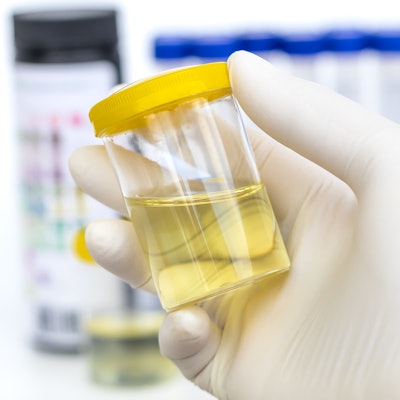
A new urine test developed by U.K. researchers shows promise for reducing unnecessary prostate biopsies, according to a study published online March 9 in the Prostate journal.
A group from the University of East Anglia has established a test that identifies biomarkers for prostate cancer via urine samples. The test could offer patients a less-invasive method of prostate cancer diagnosis, wrote a team led by Shea Connell, a student at the university's Norwich Medical School.
"Current practice assesses a patient's disease using a [prostate-specific antigen (PSA)] blood test, prostate biopsy, and MRI," Connell said in a statement released by the university. "But up to [60%] of men with a raised PSA level are negative for prostate cancer on biopsy. So it is clear that there is a considerable need for additional, more accurate, tests."
Connell and colleagues created a prostate urine risk test called ExoMeth that they believe could diagnose aggressive prostate cancer up to five years earlier than other diagnostic methods. The test combines information from different components in urine, including cell-free RNA and cellular methylation, according to the team. It was developed with data from 197 patient urine samples that were then used to train a machine-learning algorithm to find which combination of biological markers could predict prostate cancer.
As the test's risk score increased (range, 0-1), the likelihood of high-grade disease being identified on biopsy was greater (odds ratio, 2.04 per 0.1 increase in ExoMeth score), the researchers found. Upon transrectal ultrasound biopsy, ExoMeth accurately predicted Gleason scores, and it had an area under the curve (AUC) of 0.91 for detecting cancer on biopsy.
The test needs further validation, but it shows promise for reducing unnecessary prostate biopsies, senior author Dr. Daniel Brewer said in the university statement.
"It's still very early days for this research, but if ExoMeth were validated in a future study with many more patients, we could see an approximate [60%] reduction in unnecessary biopsies in around five years," he said.



















